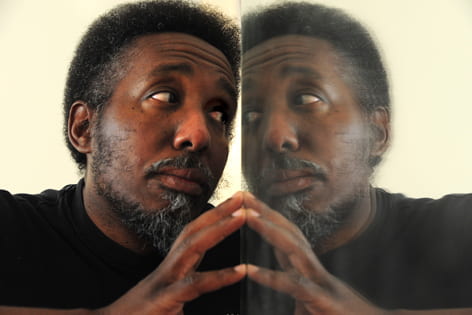UCI author envisions change
In his recently released memoir, “Incognegro,” Frank Wilderson criticizes Nelson Mandela’s presidency for failing to deliver on its promises of social equality and significant reform.

In the 1990s, Frank B. Wilderson III lived the dying days of apartheid in South Africa, working as a university teacher, propagandist, and as one of two Americans elected to Nelson Mandela’s governing party, the African National Congress.
In his recently released memoir, Incognegro, Wilderson, African American studies and drama professor, criticizes Mandela’s presidency for failing to deliver on its promises of social equality and significant reform. He says that Mandela did not implement radical social change and carry out a redistribution of wealth that could have benefited millions of impoverished black South Africans.
“There was a tremendous expectation that the political and economic disenfranchisement of South Africa’s black people would be done away with,” he says. “This did not happen. What happened was that a black face was put on the structure of the same economic and racial inequalities.
“But it was harder to agitate and organize against that because this was ‘your face.’ So, the question was: Why are you still doing so poorly if your ‘face’ is president?”
Wilderson’s different, less popular views on Mandela’s era may be controversial, but he hopes Incognegro will bring clarity to his alternative perspective.
Wilderson also hopes readers will see parallels between what he witnessed in South Africa more than a decade ago and modern America at the dawn of the Obama presidency.
“I’m not sure if this new administration is willing or perhaps even able to address serious, unresolved issues any more than Nelson Mandela was, but we’re going to have to feel good about it because it’s ‘our administration,'” Wilderson says. “We could be headed for the same situation here.”
Wilderson recently completed a 20-city book tour that included stops in New York, Seattle, Vancouver and Los Angeles. The book received significant praise for its powerful storyline and provocative themes, and earned Wilderson the 2008 American Book Award, which recognizes outstanding achievement from the country’s diverse literary community.
The manuscript includes colorful vignettes of Wilderson’s boyhood in Minneapolis, where his family became the first African American homeowners in the upper-middle-class enclave of Kenwood.
He came of age as the U.S. civil rights movement peaked and lived on or near college campuses most of his life. Student activists were no strangers in his parents home, where intellectual debate commonly reached a fever pitch. By age 12, he was poring over the black power and civil rights literature students left behind, although he did not always fully understand it.
“I acted old,” he says. “I wanted to drink martinis and talk about freedom instead of playing with other kids.”
While working on a master’s in creative writing at Columbia University, Wilderson traveled to South Africa and later spent five years there, keeping a detailed journal. At first he was not sure what it might become.
“By the time apartheid ended and as the turmoil inside the ANC was becoming very evident, I realized some type of document was needed to bear witness to what had happened,” Wilderson says.
After a rift in the ANC led Mandela to consider him a threat to national security, Wilderson returned to the U.S., where he earned a doctorate in rhetoric and film studies from UC Berkeley in 2004 and one year later became a UCI professor.
Wilderson is currently writing another book, Red, White, & Black: Cinema and the Structure of U.S. Antagonisms, and directing a documentary, Reparations … Now.
“UCI is probably the best place I could be,” he says. “I need a place that rewards me for intellectual output. The university is committed to research of the highest register.”